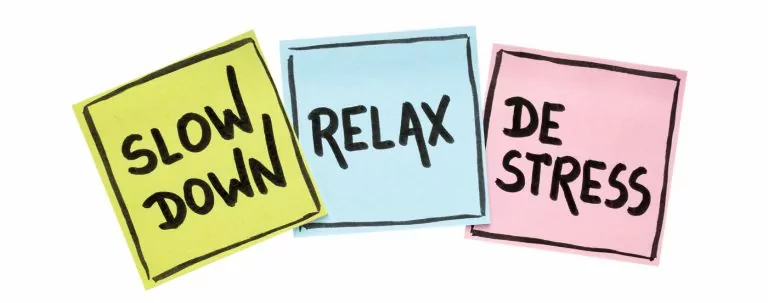Blog

It’s Been Two Months Since the Holidays. Still Feeling Stressed?
Another year, another holiday season comes and goes—quickly. We are already in February 2019 and may still be asking ourselves, “Where did the time go?” As enjoyable as the holiday season may be, one possible aftereffect that unfortunately lingers is stress, which affects many of us. We can refer to this as “post-holiday stress,” and it can linger for a while.
It is not out of the ordinary to feel stress after the holidays.
Believe it or not, it is natural to feel post-holiday stress. Think about it. The task list of sending out cards and rushing around to buy gifts (with the need to buy one or two at the last minute), among many other activities, stirs us up. And for those who host holiday get-togethers for families and friends, the stress levels practically double. So, after all that planning and preparation, the holidays arrive—then pass—but we still experience tension. So, as a belated holiday present or New Year’s resolution to ourselves, however belated it may be, we need to de-stress.
Yoga, anyone?
There are countless ways to unwind and relax after the holidays. But why not consider an option that will not only relieve stress but also improve your health? Have you ever considered yoga? You may be familiar with the name, but do you know what yoga is?
Yoga is one of the six orthodox schools of Hindu philosophical traditions. Its discipline combines breath control, meditation, and body adaptation to specific postures. Many people practice yoga for improved health and increased relaxation.
Claire Grieve, yoga instructor and writer for Mind, Body, Green, offers a further explanation about yoga’s benefits: “A regular yoga practice also allows you the time to disconnect from the world and connect to your breath, both of which can be invaluable for maintaining a state of inner calm.”
Please keep in mind, however, that if you think practicing yoga is worth a try, it is best to learn basic knowledge of the poses, either from a class or a one-on-one session with an instructor, and consult with your healthcare practitioner before beginning.
Maybe massage?
Stress can affect our health in ways we may not be aware of—not just emotionally but physically. According to a report from the Mayo Clinic, the adverse effects of stress may cause headaches, muscle tension or pain, chest pain, a change in sex drive, an upset stomach, and problems sleeping. (Remember, these are just the physical side effects of stress.) In such cases, massage therapy may be a preferable and safer alternative to yoga.
If you are unsure whether a massage therapy session is worth the money or time, consider the benefits—which you may find outweigh the cost. The benefits of massage therapy, as outlined by Body & Mind, begin with the obvious one: relaxation, whereby the body undergoes a “recovery mode,” transforming into a healthier state of being. Additionally, getting a massage can help lower blood pressure, promote muscle relaxation, improve circulation and posture, and strengthen the body’s immune system.
Closing thoughts
It is a person’s responsibility to maintain the health of their body, mind, and spirit. After all, it’s the only one we’ve got. And the holidays, while a happy time, can indirectly harm our health due to the stress of the activity surrounding the season. If you are feeling any indicators of post-holiday stress, such as being drained, tired out, or achy—especially two months later— do yourself the favor of being good to yourself through practices such as yoga or splurging for a massage. Your body, mind, and spirit will thank you for it.
Has this post inspired you to consider a career in massage therapy, physical therapy, or any other health-related career? Swedish Institute can help you get started. Contact us today to learn more.
Recent Posts
- An Inside Look at Medical Assistant Classes
- Why are Sepsis and Staph Infections So Common in Hospitals?
- Mental Health, Nursing, and Education: Meet Swedish Institute Grad Omarr Savage
- From Student to Employer: Two Swedish Institute Grads Tell Their Success Stories
- Going Back to College After Time in the Workforce: A How-To Guide
